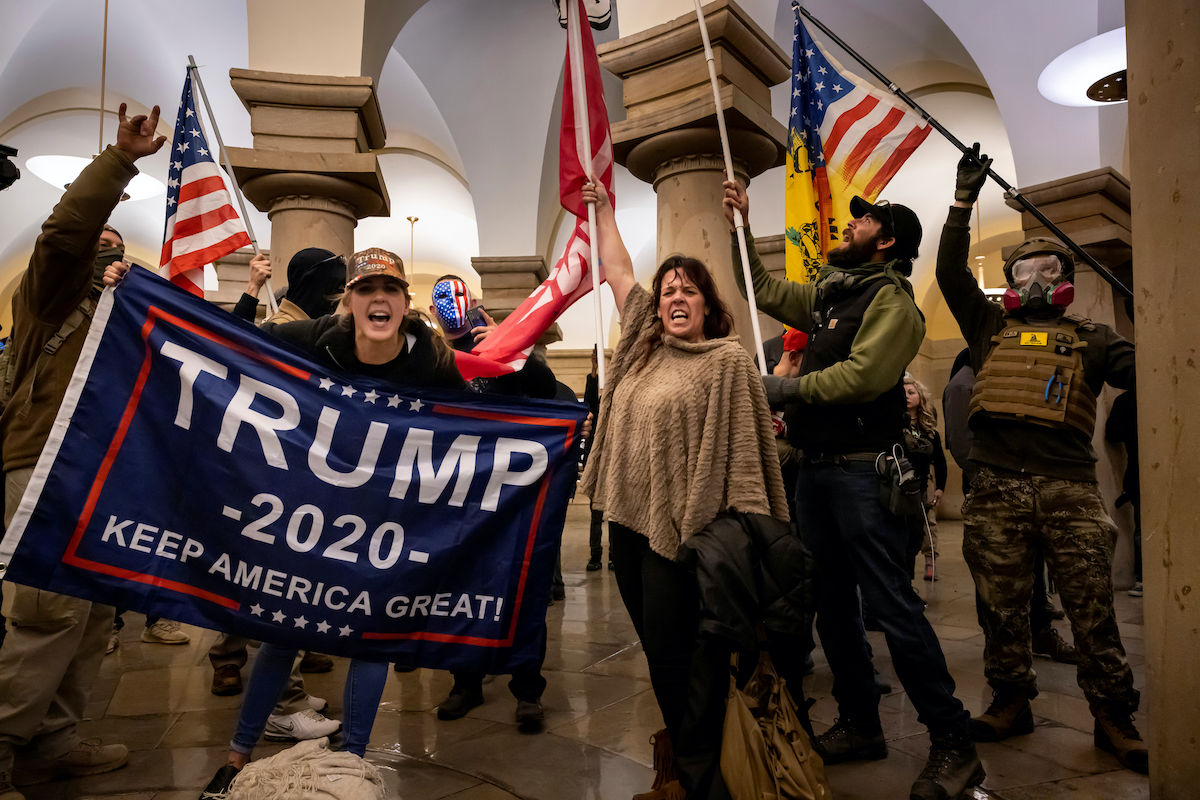Back when then-Senate Majority Leader Mitch McConnell voted to acquit Donald Trump following his second impeachment, the reason he gave was that it wasn’t Congress’ job to punish a president for crimes they may have been committed. That, he said, should happen via the legal system after they leave office.
At the time, it was an incredibly transparent cop-out—a flimsy excuse to justify his refusal to vote to convict Trump for inciting an insurrection. But as the House committee investigating the Capitol riot continues to work through evidence, some members of Congress have started to hone in on some actual, specific crimes Trump could potentially be charged with.
Republican Rep. Liz Cheney has accused Trump of “supreme dereliction of duty.” But not doing his job and even refusing to stop a coup is despicable, but it’s not necessarily a crime.
However, Cheney also said earlier this week that documents provided by Trump’s former chief of staff Mark Meadows “will bear on another key question before this committee: Did Donald Trump, through action or inaction, corruptly seek to obstruct or impede Congress’s official proceeding to count electoral votes?”
The Washington Post explains the subtext there:
A casual observer might have missed it, but what Cheney was doing here was pointing to a specific criminal statute — a felony, 18 U.S. Code § 1512 — that she suggests President Donald Trump might have violated. And both its inclusion in her comments and the timing of it shouldn’t be lost on anyone. This was a Republican member of the committee floating a specific potential Trump crime that the committee apparently wants to drill down on.
That statute, which Cheney cited again the following day, says, “Whoever corruptly … obstructs, influences, or impedes any official proceeding”—which includes “a proceeding before the Congress,” either by action or inaction—”or attempts to do so, shall be fined under this title or imprisoned not more than 20 years, or both.”
Basically, Trump’s dereliction of duty isn’t necessarily a crime, but the fact that he refused to act to stop the attack during a Congressional proceeding could be. And the 9,000-page trove of documents Meadows turned over, including text messages from Fox News hosts and even Trump’s son, begging Trump to do something to stop the attack as it was happening, definitely highlight’s Trump active decision not to act.
During an appearance on CNN, Rep. Eric Swalwell echoed Cheney’s comments, saying straight-out, “Donald Trump may be on the hook for criminal liability.”
“It wasn’t an accident that Liz Cheney laid out the elements of the offense of essentially not acting to save the Congress while we’re performing the Electoral College count. So there may be a criminal referral that could take place there,” he said, adding that the committee still has a lot more to learn.
Swalwell also said that he hoped the Department of Justice was looking into these things as well.
“If there is evidence of obstruction of Congress, I hope it at least gets a fair trial at the Department of Justice,” he said. Swalwell said he is afraid that this whole thing might get swept under the rug because of how monumental it would be to charge a former president with a crime.
“Don’t treat him any more harshly because he’s Donald Trump, but don’t do him any favors because he’s a former president,” Swalwell said.
If it is found Donald Trump broke the law he should be treated no better than any American. Law & order must still matter. https://t.co/EvQ34CaGAG
— Rep. Eric Swalwell (@RepSwalwell) December 15, 2021
(image: Brent Stirton/Getty Images)
Want more stories like this? Become a subscriber and support the site!
—The Mary Sue has a strict comment policy that forbids, but is not limited to, personal insults toward anyone, hate speech, and trolling.—










Published: Dec 15, 2021 05:36 pm